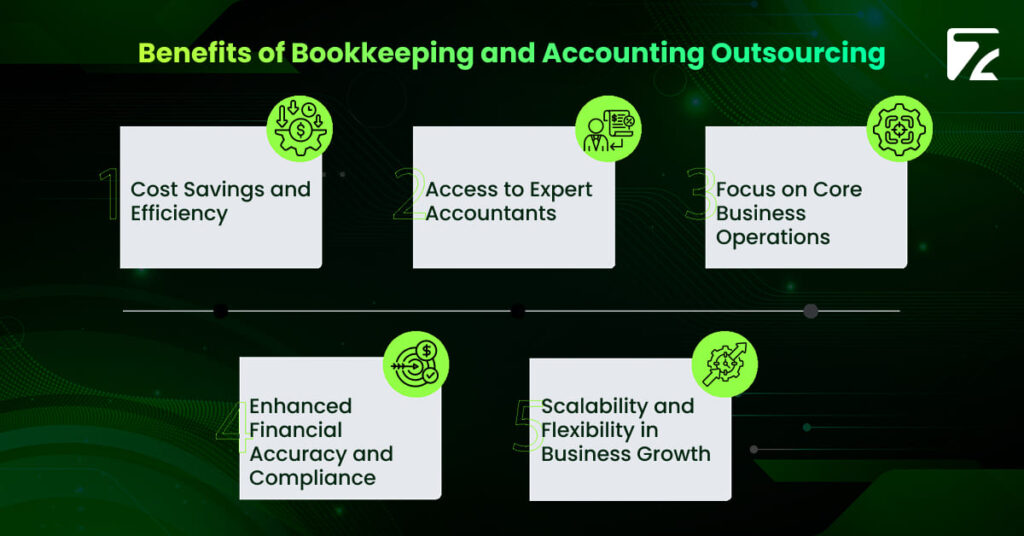Bookkeeping and accounting outsourcing has become a game-changer for businesses looking to streamline their financial operations. With rising operational costs and the increasing complexity of financial regulations, companies of all sizes are turning to outsourced accounting services. But is outsourcing the right solution for your business? Let’s dive deep into the ins and outs of bookkeeping and accounting outsourcing and see how it can benefit you.
Bookkeeping is the process of recording daily financial transactions, including sales, purchases, receipts, and payments. It involves maintaining accurate financial records and ensuring that all entries are properly categorized. Bookkeepers use accounting software like QuickBooks, Xero, and FreshBooks to keep track of financial transactions efficiently. Proper bookkeeping ensures financial transparency and aids in tax preparation.
Accounting goes beyond recording transactions; it involves analyzing financial data, preparing reports, and providing insights to support business decisions. Accountants interpret financial information to help companies optimize their finances, ensure compliance with regulatory requirements, and provide financial forecasting. They use advanced financial tools to generate reports like profit and loss statements, cash flow analysis, and balance sheets.
Cloud-based accounting solutions and AI-powered bookkeeping tools have revolutionized financial management. Businesses can now outsource financial operations with real-time access to their data. AI-driven tools such as automated invoice processing, receipt scanning apps, and bank reconciliation software have reduced human errors and increased efficiency in outsourced accounting services.
Outsourcing bookkeeping and accounting can reduce costs by up to 50% compared to hiring an in-house team. Businesses save on salaries, benefits, office space, and software expenses. Additionally, outsourced firms use cutting-edge financial tools like SAP, NetSuite, and Sage to deliver accurate results without requiring businesses to invest in expensive accounting software.

Outsourcing eliminates the need for full-time accountants, reducing payroll costs and infrastructure expenses. It also minimizes recruitment and training expenses. Businesses gain access to the latest financial tools without investing in software licenses or upgrades.
Businesses gain access to highly skilled financial professionals without the need to recruit and train in-house teams. These experts stay updated on tax laws, compliance requirements, and financial best practices, ensuring businesses remain compliant with local and international regulations.
By outsourcing financial tasks, companies can concentrate on growth and revenue-generating activities. This is particularly beneficial for startups and small businesses that need to allocate their resources efficiently.
Professional accounting firms ensure compliance with tax regulations, reducing the risk of errors and penalties. They provide accurate financial reports, making it easier to secure loans, attract investors, and maintain a healthy cash flow.
Outsourced accounting services can scale with your business needs, providing flexibility during expansion. Whether your business grows locally or globally, outsourced providers offer customized financial solutions to match your needs.
Includes recording sales, purchases, bank transactions, and general ledger maintenance. Bookkeepers reconcile bank statements and maintain accounts payable and accounts receivable records.
Handling employee salaries, tax deductions, and regulatory filings. Outsourcing payroll ensures timely salary disbursements, tax calculations, and compliance with labor laws.
Preparing balance sheets, income statements, and cash flow reports for strategic decision making. Businesses can access real-time financial insights to make informed decisions.
Helping businesses plan future financial goals and allocate resources efficiently. Outsourced accountants provide cash flow projections, profit margin analysis, and business trend insights.
Ensuring adherence to financial regulations and preparing for external audits. This helps companies meet corporate governance standards and regulatory requirements.
No need for office space, recruitment, or employee benefits. Businesses also avoid software maintenance costs.
Professional firms ensure compliance with tax laws and financial regulations, avoiding fines. They also help with audit readiness and financial risk management.
Outsourced firms use advanced accounting software, eliminating the need for businesses to invest in costly systems. Many firms integrate AI-driven analytics for better decision-making.
AI automates repetitive tasks like transaction categorization and invoice processing. AI-powered chatbots can also answer basic accounting queries in real time.
More businesses will adopt AI-powered accounting solutions, reducing manual work. Blockchain technology is also emerging as a secure way to manage financial transactions.
AI enhances efficiency, but human accountants remain essential for strategic financial planning and decision-making. Human oversight is required for complex tax calculations and financial consulting.
Compare outsourcing costs with in-house expenses to make an informed decision. Consider long-term benefits like efficiency, scalability, and compliance assurance.
Outsourcing bookkeeping and accounting is a strategic move that can save costs, improve efficiency, and ensure compliance. With the right outsourcing partner, businesses can focus on growth while experts handle their financial needs. Whether you’re a startup or an established enterprise, outsourcing financial tasks can be a game changer.
Bookkeeping outsourcing focuses on recording daily financial transactions, while accounting outsourcing includes financial analysis, tax planning, and compliance management. Both services help businesses save time and improve accuracy.
Businesses can save up to 50% on costs compared to hiring in-house accountants. Savings come from reduced payroll expenses, software costs, office space, and compliance management.
Yes, reputable outsourcing firms use encrypted data storage, multi-factor authentication, and compliance with financial security regulations like GDPR and SOC 2 to ensure data security.
Common outsourced accounting tasks include transaction recording, payroll processing, tax compliance, financial reporting, budgeting, forecasting, and audit preparation.

Travel Automation Expert